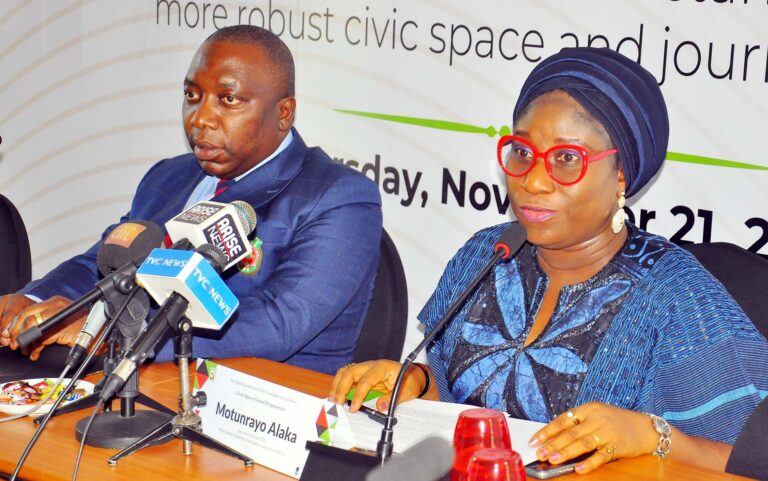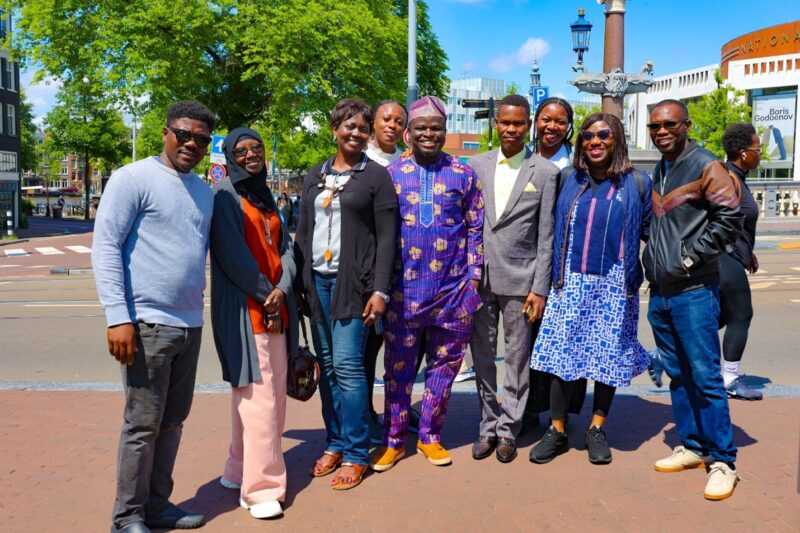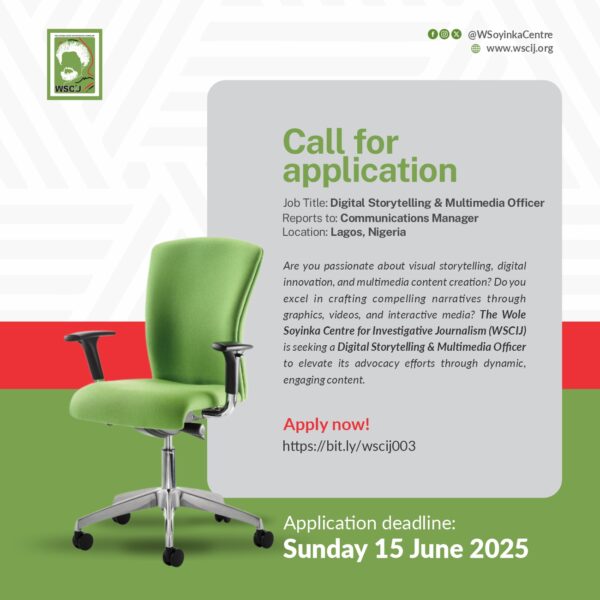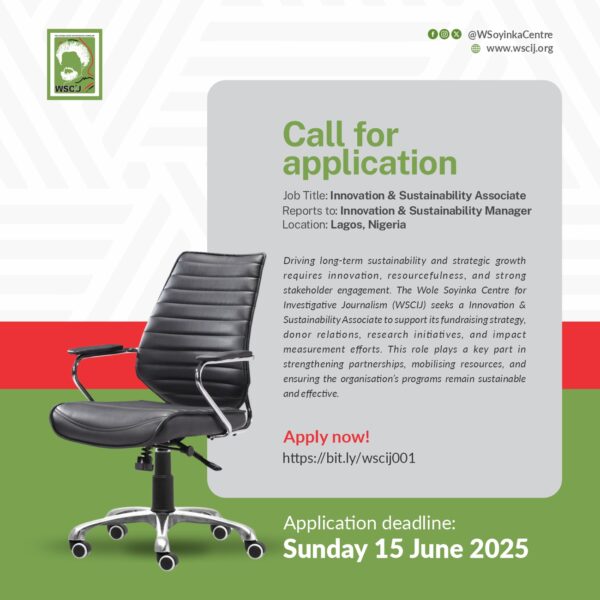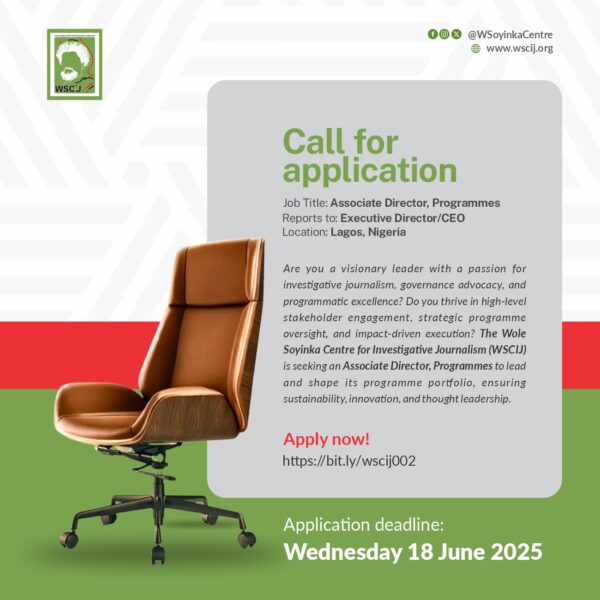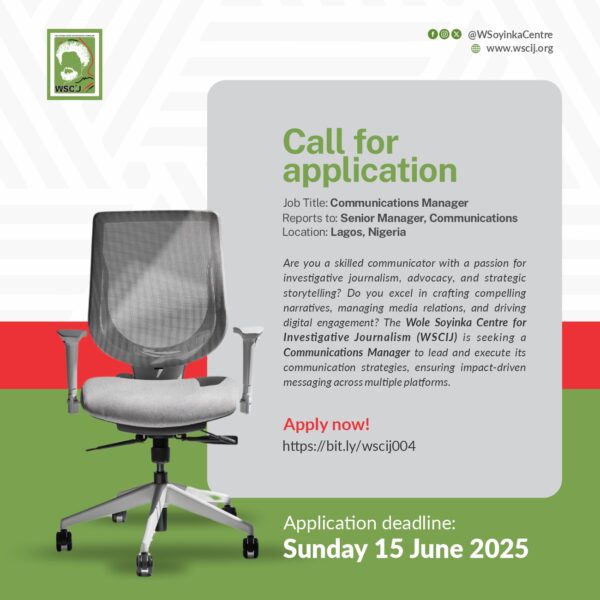Security agencies, news media, civil society, lawyers and other stakeholders agreed on the urgent need to collaborate to safeguard journalists and civic space to improve democracy and Nigeria’s international image. This was the consensus at the high-level meeting organised by the Wole Soyinka Centre for Investigative Journalism (WSCIJ) on Thursday, 21 November 2024 in Abuja. Nuhu Ribadu mni, the National Security Adviser, who was represented by Samad Akesode, a Major General and Director of Communications, Office of the National Security Adviser (ONSA), gave the keynote and stakeholders committed to safety of journalists and the civic space through cooperation and actionable solutions as they reaffirmed the need for a free and independent press as a cornerstone of democracy.
In her opening remarks, Motunrayo Alaka, Executive Director/CEO, highlighted the risks faced by journalists, particularly during elections and public protests. Drawing from WSCIJ’s 2023 Journalism and Civic Space Status Report, Hushed Voices in an Election Year, she revealed that 90 per cent of attacks on journalists occur while they are on duty, with polling units and protest grounds identified as the most dangerous locations for journalists. Alaka noted that journalists, who are central to ensuring accountability and transparency, should not have to look over their shoulders in fear, adding that a society where journalists feel unsafe undermines democracy and the principles of freedom of expression. She urged participants, including security agencies, civil society, and the judiciary, to collaborate to safeguard civic freedoms and promote mutual understanding.
Nuhu Ribadu, the National Security Adviser, in his keynote address on the theme “Promoting mutual understanding for journalists’ safety and a more robust civic space”, presented by Samad Akesode, recognised the critical role of journalists in democracy and acknowledged tensions between the press and security agencies. He called for regular engagement and capacity-building initiatives to bridge gaps and foster trust. Ribadu who said the media and government work from different angles to advance society noted that occasional misunderstandings should not be mistaken for deliberate attempts to undermine civic space advocated regular interface like the high-level meeting, between the media and security agencies as a veritable mechanism for smoothening any rough edges between the two partners on national security. He advised journalists to adopt fact-based reporting and avoid sensationalism, which he said could heighten tensions and compromise national security.
While contributing to the conversation, Richard Akinola, Executive Director, Centre for Free Speech who recalled a similar meeting happened in 1986 between journalists and the Department of State Services (DSS) lamented that not much has changed despite years engagements. Other news media leaders lamented several instances where reporters are prevented from carrying out their duties due to stories previously published by the outlet, criticised government information managers for promoting narratives that could be classified as fake news in the media and noted that security agencies are no more patriotic than journalists and therefore should not continue to intimidate the latter.
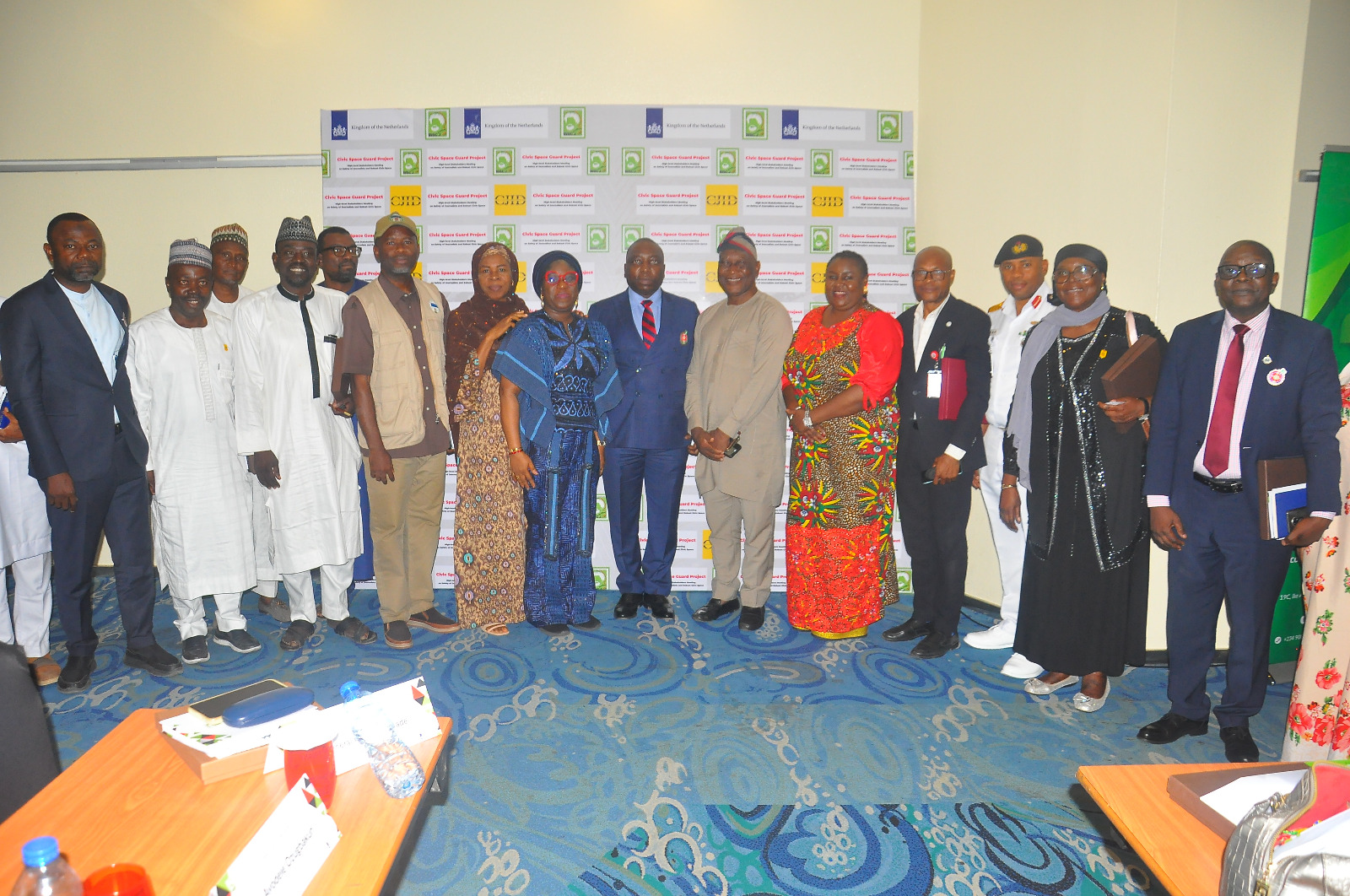
In her submission, Zainab Okino, Chairperson of the Editorial Board at Blueprint Newspaper, spotlighted the psychological intimidation faced by media professionals including opinion writers. She noted that they often receive threatening calls that create fear and lead to unconscious self-censorship. While calling for comprehensive institutional reforms, Musikilu Mojeed, Editor-in-Chief, Premium Times, emphasised the gap between commitments made by senior security officials at different engagement fora and the actions of personnel on the ground saying the situation shows a systemic problem and needs to be addressed.
Lawyer, Yunus Abdusalam, SAN, in his submission told the gathering that libel suits against journalists often stem from efforts to suppress truth-telling. He therefore called on journalists to strengthen their legal awareness and record-keeping to defend against such attacks. Abdulsalam told journalists to be aware that every story they put out can be the subject of a lawsuit, hence the need to engage in legal education. Also, Chikas Kumle, representing the Women in Politics Forum, highlighted the specific challenges with violence in politics faced by women in journalism and politics.
On his part, Abdulaziz Abdulaziz, Special Adviser to the President on Print Media, described the current administration as the most accessible in terms of public engagement. He stated that the federal government consistently engages with the media and has no intention of undermining press freedom. However, he expressed concern about the influx of individuals he referred to as unqualified practitioners into the journalism profession and called for the media to undertake a process of self-regulation. Also, Chris Olukolade (Rtd), a Major General and former Director of Defence Information and the Chairman, Centre for Crisis Communication called on the government to make all information public to prevent speculations which often lead to disagreements between government information managers and the news media.
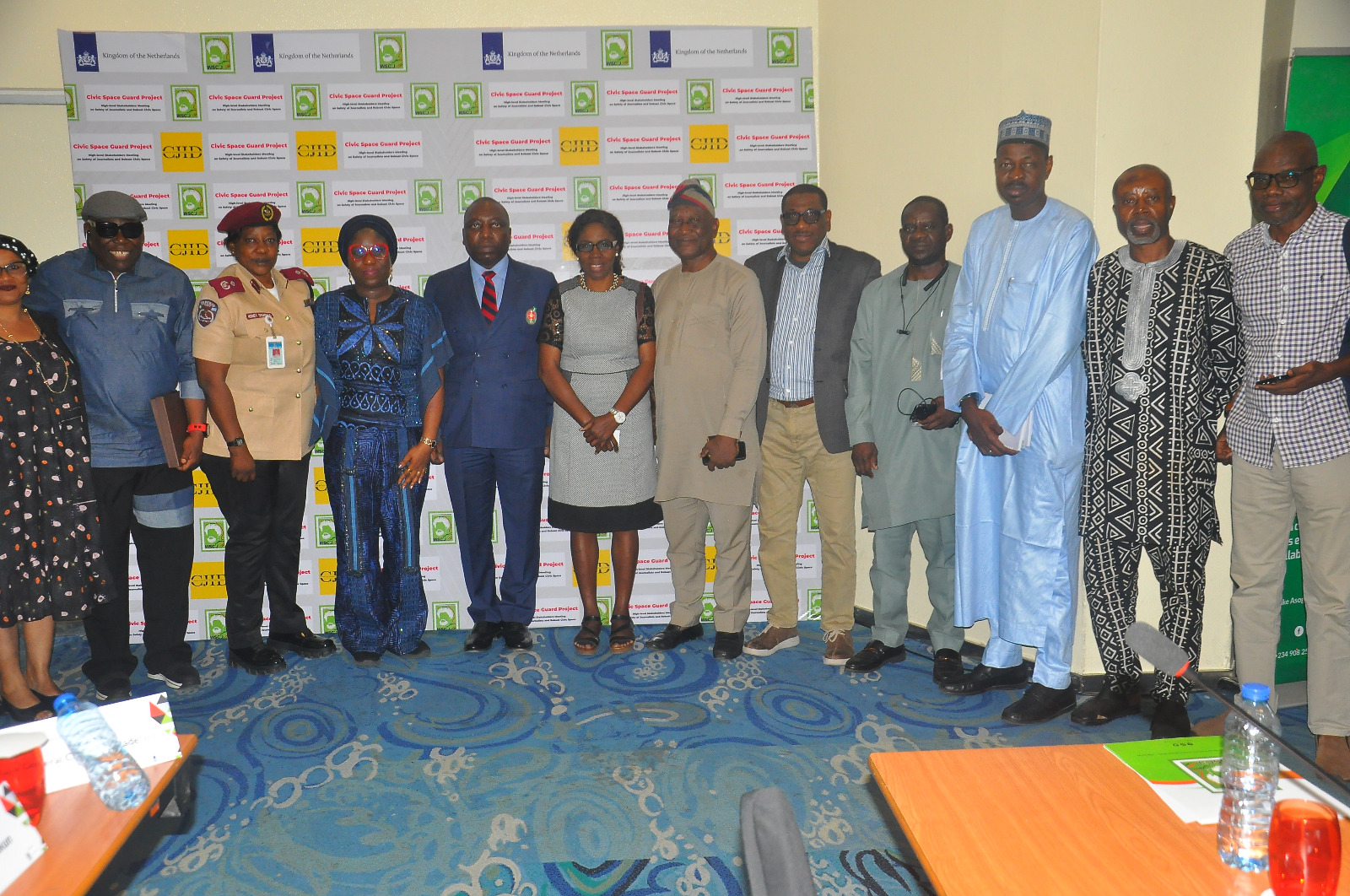
Christiana Longe, project manager, press freedom at Centre for Journalism Innovation and Development (CJID) decried the consistent attacks on journalists. According to her, 128 attacks have so far been recorded this year, with 68 of those attacks happening during the #EndBadGovernance protests. She asked for laws that better protect journalists due to the work that they do.
Lending his voice to the conversation, Femi Falana, SAN, Human rights activist and lawyer, urged the National Security Adviser to instruct all security agencies in the country to cease using repealed laws to harass citizens and restrict civic space. He criticised the frequent misuse of treason and terrorism charges to target journalists and condemned the persistent practice of arresting individuals as substitutes for others.

Representatives of security chiefs in attendance, including Captain Ayi Bassey Ayi, who represented the Chief of Naval Staff, called for stronger collaboration between the military and the media. One representative emphasised the need for the media to gain a better understanding of military protocols, stating that improved engagement and capacity-building efforts could foster better relations.
Other stakeholders present at the meeting include Musa Aliyu, SAN, Chairman, Independent Corrupt Practices and Other Related Offences Commission (ICPC); Olusola Akinboyewa, Air Commodore and Director of Public Relations and Information (DOPRI), Nigerian Air Force (NAF), Onyedi Ojiabor, Bureau Chief, The Nation; Abigail Ogwezzy-Ndisika, Director Institute of Continuing Education University of Lagos; Kole Shettima Director, MacArthur Foundation; Yushau Shuaib, Executive Director PR Nigeria; Osita Nwajah, former Director of Information Economic and Financial Crimes Commission (EFCC), Chizoba Ogbeche, National Vice President of the Nigeria Association of Women Journalists (NAWOJ); Zubaida Abubakar Umar, Director-General of the National Emergency Management Agency (NEMA) who was represented by Mr. Manzo Ezekiel, NEMA Information Officer; and Honey Ogundayo, Head Federal Road Safety Corps (FRSC) National Traffic Radio.
A highlight of the event was the drafting and adoption of a communique comprising of actionable points including the repelling of some obsolete laws and the review of some of them to reflect modern realities. The Civic Space Guard programme positions journalists as guards of the civic space. It conducts research, trains journalists on safety, provides platforms for conversations, gives mental health support to reporters, engages with key stakeholders including security agencies to foster collaborations that promote freedom of expression, press freedom, and democratic participation. The WSCIJ is partnering with the Centre for Journalism Innovation and Development with the support of the Netherlands Embassy on the project till 2025.
Signed
WSCIJ Team

